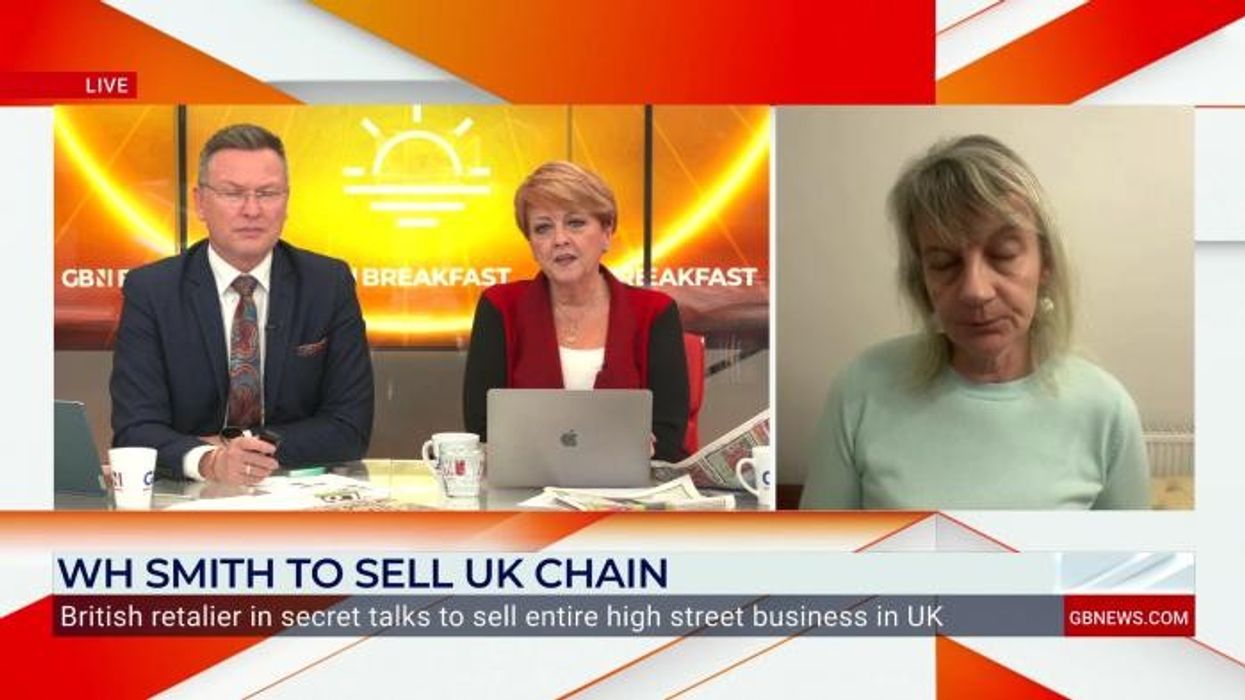Labour reforms to 'protect' high street trigger £600m tax hit for major supermarkets and retailers - 'Nuts!'

Helen Dewdney discusses the death of the high street as it's revealed WHSmith is in talks to sell up |
GBNEWS

The changes are set to hit Tesco, Asda and Sainsbury's particularly hard
Don't Miss
Most Read
Major supermarket chains and retailers in London are bracing for tax increases of at least £600 million from April 2026, according to property consultancy Colliers.
The surge stems from Government business rates reforms that will raise taxes on commercial properties valued above £500,000 whilst reducing rates for smaller retail, hospitality and leisure establishments.
The changes are set to hit grocery giants particularly hard, with more than 90 per cent of stores operated by Tesco, Asda and Sainsbury's exceeding the £500,000 rateable value threshold.
West End retailers also face some of the steepest increases, with 335 properties in areas including Knightsbridge expected to see their annual tax bills rise significantly.
The Treasury has positioned these changes as creating a fairer system that protects high street businesses, with over 280,000 retail, hospitality and leisure properties set to benefit from permanently lower rates starting in 2026.
 Britain's high streets have been hit by a wave of store and restaurant chain closures | PA
Britain's high streets have been hit by a wave of store and restaurant chain closures | PAProperties with rateable values exceeding £500,000 will face the higher multiplier, which is expected to reach approximately 55p in the pound.
A rateable value (RV) is a valuation of a non-domestic property, primarily used to determine the amount of business rates payable.
The reforms will also reduce the business rates multiplier for smaller properties whilst increasing it for larger commercial properties across all sectors to fund the cuts.
The Government is also removing the existing £110,000 cap on rate relief, though the reforms will be funded by imposing higher rates on what officials describe as the one per cent most valuable business properties.
Colliers' analysis reveals that West End properties in the affected areas could see rateable values increase by approximately 30 per cent following revaluation.
This would push annual tax liabilities for these 335 properties from £212 million to £274 million, representing an average increase of £182,727 per property.
The grocery sector faces particularly severe impacts, with supermarkets alone expected to shoulder more than £350 million in additional annual costs.
The burden extends beyond retailers to their supply chains, with food manufacturers, bakeries and dairies also confronting higher bills due to the reforms.

The reforms introduce permanently lower business rates multipliers for RHL properties with a rateable value (RV) below £500,000
| GB NEWSThese tax increases compound existing pressures, adding to the sector's current £11 billion annual business rates bill and recent rises in employer national insurance contributions.
John Webber, head of business rates at Colliers, condemned the policy as "nuts", arguing it "piles pressure on the very businesses we need to revitalise the high street".
He questioned the Government's logic: "At a time when our high street is suffering with the cutting of reliefs for the small stores and the bigger stores are seeing the hike in employment costs with the increase in employer national insurance contributions and the national minimum wage, why does the Government think it is sensible to hit the bigger retail, hospitality and leisure players?"
Webber warned that even smaller businesses might find the benefits limited, stating: "Even the smaller retail, hospitality and leisure businesses may find this a hollow victory. Reliefs have already been slashed and steep RV rises could offset any gains."
 A small business owner expressed her concern for an incoming Labour government | GB News
A small business owner expressed her concern for an incoming Labour government | GB NewsProperty experts warn the changes could push retail giants out of city centres, threatening jobs and footfall.
A Treasury spokesman defended the reforms: "We are a pro-business Government that is creating a fairer business rates system to protect the high street, support investment and level the playing field.
"Our reform to the business rates system will introduce new, permanently lower business rates in 2026 while removing the £110,000 cap, benefiting over 280,000 retail, hospitality and leisure business properties.
"This will be sustainably funded by a new, higher rate on the 1 per cent of most valuable business properties."
More From GB News










